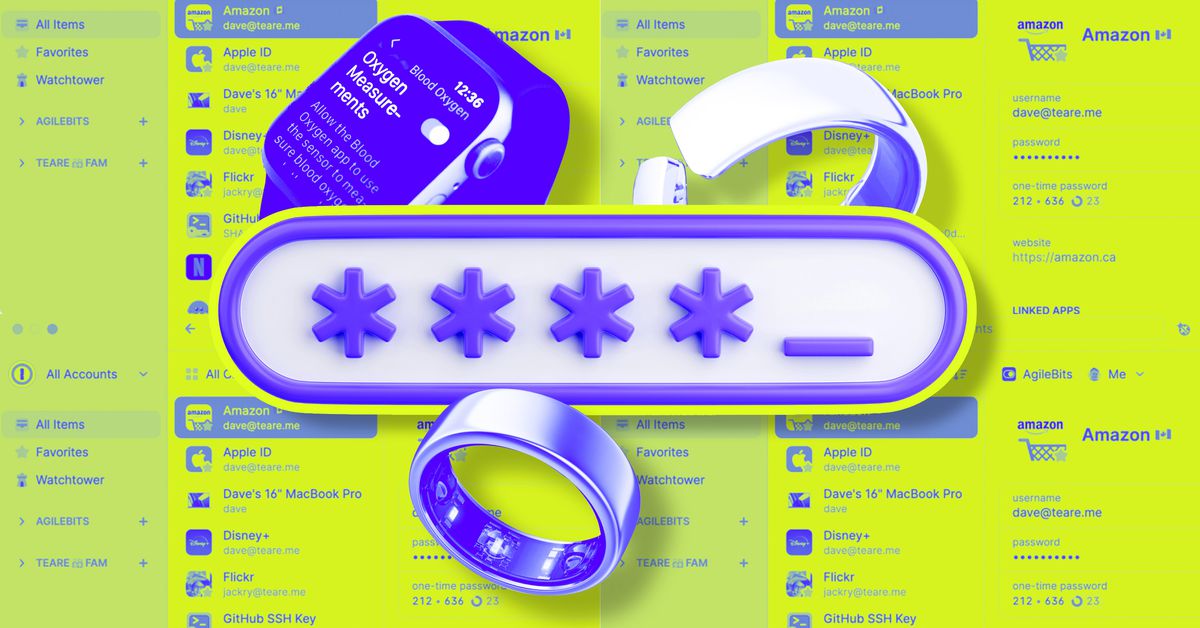- cross-posted to:
- news@lemmy.linuxuserspace.show
- cross-posted to:
- news@lemmy.linuxuserspace.show
Passkeys: how do they work? No, like, seriously. It’s clear that the industry is increasingly betting on passkeys as a replacement for passwords, a way to use the internet that is both more secure and more user-friendly. But for all that upside, it’s not always clear how we, the normal human users, are supposed to use passkeys. You’re telling me it’s just a thing… that lives on my phone? What if I lose my phone? What if you steal my phone?



Ok so 2fa is based on things you know (passwords) things you have (devices), and things you are (biometrics).
I could see passkeys replacing the phone portion of a 2fa, but replacing a password? That can both invalidate the point of 2fa (verifies you have a device twice) and kill the benefits of having a password (if I lose my device I can still login, if it’s stolen the attacker can’t access all of my accounts).
Passkeys are protected by either your device’s password/passcode (something you know) or your device’s biometrics (something you are). That provides two factors when combined with the passkey itself (something you have).
The benefit of the password is only available if you know your password for your accounts or if you have a password manager. People can only remember a limited number of passwords without resorting to systems or patterns. Additionally, with many accounts now knowing the password is not enough to log in, you must either be logging in from an existing device or perform some kind of 2FA (TOTP, SMS, hardware security key, etc). So you already need to have a backup device to log in anyways. Same with a password manager: if you can have a copy of your vault with your password on another device then you can have a copy of your vault with your passkey on another device. Nothing gets rid of the requirement to have a backup device or copy of your passwords/passkeys if you want to avoid being locked out.
People also don’t have a backup device though.
Password patterns are best.
And that’s a problem with most authentication factors and with how most systems don’t rely on just the password anymore. If you don’t have a backup device, you’re going to run into issues.
wouldn’t it be 3fa with biometrics also ? Thanks for your explanation btw
Ideal MFA:
Something you have.
Something you know.
Something you are.
If getting married, add:
Something blue.
Fun fact, I frequently use the word blue as my security question answers. Not all of them but enough that even if a person got to “know” me enough to know what city I was born, they wouldn’t know which answers are true or which are blue.
I use my password manager to generate the answer. My mothers maiden name is CzyHcjMKMfwT4tZ7HXbavQrOPo and my first pet was Avhu6FqPTRsWwafA, but we called him Avhu for short.
I used to make them quite long until I was asked to confirm my identity over the phone using one once hahaha.
Now they’re max 10 alphanumeric characters and all lower case but still random.
I think it makes it even better when I have to read out my 30 character alphanumeric first girlfriend’s dog’s birth town’s name over the phone… they’re certainly gonna know it’s me calling lol
The absolute best is when you get to choose the security question and you can just put “read the Bitwarden secret.”
I like to think that if enough people ended up taking 10 minutes on a support call to validate someone’s identity, when it should take 10 seconds, maybe the companies would learn to stop asking stupid security questions. I like to think that, but in reality nothing will change.
All of that and the IRS will still ask what street your first pets mom died on.
Ah, yes, D7k3y2mHy5lZhbyHa St, I remember it well.
Yeah security questions like that are the dumbest goddamn thing. “Create a super secure password that no one can guess, and enter the answers of five trivia questions about yourself that are likely in the public record about you or that you’ll happily reveal in small talk with strangers just in case you forget that super secure password.”